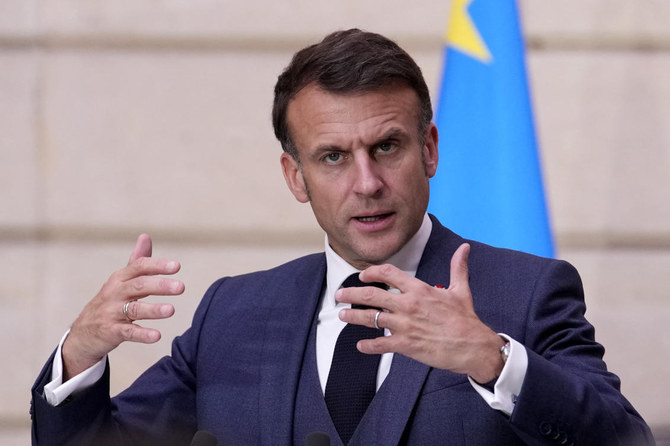In a recent statement, French President Emmanuel Macron ignited a contentious debate by suggesting that Ukraine should be permitted to strike military targets within Russia. This proposal, while bold, has stirred both support and criticism from various quarters. Examining the complexities of this suggestion involves not only understanding its immediate implications but also delving into the broader geopolitical landscape of the region.
Macron’s Proposal: Rationale and Controversy

President Macron’s proposition stems from his belief that allowing Ukraine to hit military targets in Russia could potentially deter further Russian aggression. Macron argues that such a move would serve as a deterrent, compelling Russia to reconsider its aggressive actions in Eastern Europe. Moreover, he emphasizes the need for Ukraine to defend itself against Russian aggression, citing the ongoing conflict in Eastern Ukraine and the annexation of Crimea as evidence of Russia’s expansionist ambitions.
However, Macron’s suggestion has sparked significant controversy both domestically and internationally. Critics argue that such a policy could escalate the conflict, leading to a full-scale war between Ukraine and Russia. They caution against further militarization of the region, fearing it could destabilize not only Ukraine but also the broader European security architecture. Additionally, there are concerns about the potential human cost of such a strategy, with fears of civilian casualties and widespread destruction.
Analysis of Macron’s Proposal
To evaluate Macron’s proposal, it is essential to consider its potential consequences from various perspectives:
- Military Effectiveness: Allowing Ukraine to target military sites in Russia could disrupt Russian military operations and supply chains. However, it may also prompt Russia to retaliate with even greater force, leading to a dangerous escalation.
- Diplomatic Ramifications: Macron’s suggestion could strain diplomatic relations between Russia and Western countries, further exacerbating tensions. It may also complicate efforts to negotiate a peaceful resolution to the conflict in Eastern Ukraine.
- Domestic Implications: In Ukraine, Macron’s proposal may be viewed as a sign of international support for their struggle against Russian aggression. However, it could also raise unrealistic expectations and fuel nationalist sentiments, making it harder to reach a diplomatic solution.
- Humanitarian Concerns: Any escalation of the conflict could result in civilian casualties and humanitarian crises, particularly for those living in the conflict zone. Macron’s proposal must be evaluated in light of its potential impact on innocent civilians caught in the crossfire.
Comparative Analysis
To better understand the implications of Macron’s proposal, it is instructive to compare it with alternative strategies:
| Strategy | Advantages | Disadvantages |
|---|---|---|
| Macron’s Proposal | – Potential deterrence against Russian aggression<br>- Empowerment of Ukraine in self-defense | – Risk of escalation and wider conflict<br>- Diplomatic fallout and strain on international relations |
| Diplomatic Negotiation | – Peaceful resolution to the conflict<br>- Preservation of stability in the region | – Slow progress and lack of immediate results<br>- Dependence on cooperation from all parties involved |
| Military Support for Ukraine | – Strengthening of Ukrainian defense capabilities<br>- Increased pressure on Russia to negotiate | – Risk of provoking Russia and escalating the conflict<br>- Possibility of arms race and further militarization |
Conclusion
President Macron’s proposal to allow Ukraine Implications to target military sites in Russia has reignited debates surrounding the conflict in Eastern Europe. While it offers a potential deterrent against Russian aggression, it also carries significant risks of escalation and further destabilization. As the international community deliberates on the best course of action, it must weigh the immediate benefits against the long-term consequences, prioritizing the goal of achieving a peaceful resolution to the conflict while ensuring the security and stability of the region.












